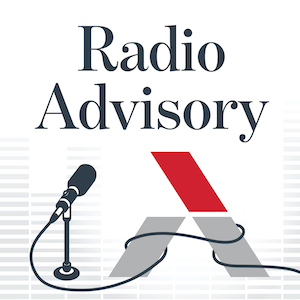Auto logout in seconds.
Continue LogoutThe American Hospital Association (AHA) and American Medical Association (AMA) on Thursday filed a lawsuit against part of CMS' surprise billing rule, arguing that the independent dispute resolution process unfairly favors insurers and will "prevent fair and adequate compensation" to medical providers.
What CMS' latest surprise billing rule means for you
CMS' surprise billing rule
CMS in September released an interim final rule on surprise billing, which is scheduled to take effect Jan. 1, 2022. The rule establishes a process to settle disputes between out-of-network providers or facilities and health plans over so-called "surprise" medical bills, which occur when an out-of-network provider participates in a patient's care at an in-network facility.
As part of this dispute-resolution process, the disputing parties will submit their proposed payment rates along with supporting documentation to an independent dispute resolution entity—either one who is jointly selected or chosen by HHS. The entity will then issue a binding determination by selecting one of the two parties' rates as the payment amount.
However, the rule notes that the dispute process "must begin with the presumption" that the appropriate payment amount is the median rate negotiated by insurers for the service in the patient's geographical area. From there, the arbiter may also consider five other factors specified by Congress, such as experience of the provider, type of hospital, and complexity of the treatment.
Upon the rule's release, representatives of hospital industry groups harshly criticized it, arguing that the Biden administration violated the intent of the No Surprises Act by prioritizing the median negotiated rate over other factors in determining an appropriate payment amount.
For example, Stacey Hughes, EVP of AHA, called the rule "a windfall for insurers." Hughes added, "The rule unfairly favors insurers to the detriment of hospitals and physicians who actually care for patients. These consumer protections need to be implemented in the right way, and this misses the mark."
AHA, AMA sue over arbitration process
AHA and AMA on Thursday sued the federal government in the U.S. District Court for the District of Columbia over provisions in surprise billing rule pertaining to the dispute-resolution process, arguing that it unfairly favors insurers, Modern Healthcare reports. According to Kaiser Health News, the lawsuit was joined by Renown Health, UMass Memorial Health, and two North Carolina physicians. Previously, the Texas Medical Association and the Association of Air Medical Services separately filed similar lawsuits against the rule.
In the lawsuit, AHA and AMA argue that this arbitration process will harm their members, as well as patients, due to underpayment of out-of-network bills. Specifically, the organizations said the rule's provision mandating that arbitrators focus on median in-network rates "places a heavy thumb on the scale" against providers and "barely resembles" the process Congress envisioned. According to the organizations, Congress in passing the No Surprises Act did not prescribe any "particular weight or presumption for any one factor.” In fact, AHA and AMA argue, Congress ordered arbitrators to consider all factors—and that the rule's focus on median in-network rates will "prevent fair and adequate compensation."
AHA and AMA state that the currently proposed process will limit access to care by barring meaningful contract negotiations. According to the organizations, the system would cause insurers to lower in-network rates, which could force some providers out of insurance networks.
"Congress established important patient protections against unanticipated medical bills in the No Surprises Act, and physicians were a critical part of the legislative solution," said AMA President Gerald Harmon. "But if regulators don't follow the letter of the law, patient access to care could be jeopardized as ongoing health plan manipulation creates an unsustainable situation for physicians."
He added, "Our legal challenge urges regulators to ensure there is a fair and meaningful process to resolve disputes between health care providers and insurance companies."
In addition, AHA president and CEO Rick Pollack said, "No patient should fear receiving a surprise medical bill. That is why hospitals and health systems supported the No Surprises Act to protect patients and keep them out of the middle of disputes between providers and insurers. Congress carefully crafted the law with a balanced, patient-friendly approach and it should be implemented as intended."
According to Kaiser Health News, the Biden administration has defended its interpretation of the surprise billing rule, with HHS Secretary Xavier Becerra saying the system "provides the guideposts to keep us efficient, transparent and cost-effective," since leaving the arbitration process "wide open" would lead to costs increasing. (Goldman, Modern Healthcare, 12/9; Appleby, Kaiser Health News, 12/9; Minemyer, Fierce Healthcare, 12/9)
The biggest policies coming your way
As Covid-19 begins to slow down in the United States, the health care world is starting to refocus on some of the issues that permeated the space before the pandemic. In this episode, Rae sits down with Advisory Board's Rob Lazerow and Heather Bell to talk about how three new policies—hospital price transparency, payer price transparency, and surprise billing—will affect the health care industry.
First regulation provides needed clarity—but leaves some questions unanswered
 By Heather Bell, Senior Consultant
By Heather Bell, Senior Consultant
The Biden administration on Thursday released the first of three rules to implement the No Surprises Act—and while the rule leaves several questions unanswered, it offers providers and insurers more clarity on key definitions.
For example, the rule more clearly defines emergency and post-stabilization services that will be protected from balance billing. The rule also details the methodology insurers will use for calculating the qualifying payment amount—which will be used to determine patients’ cost-sharing—as well as the information related the qualifying payment amount that insurers must be prepared to share with providers.
While we're still waiting for regulations on the newly created independent dispute resolution (IDR) process for providers and insurers, the rule offers more clarity on the steps providers and insurers must take to notify patients about out-of-network care costs, as well as steps that must be completed before providers and insurers can enter the IDR process. For example, the law allows certain eligible out-of-network providers to balance bill patients if they receive the patient's written consent. This consent form must be provided at least 72 hours before the date of service, and the rule specifies requirements related to the notice. Providers should pay close attention to this requirement and their transparency practices and find ways to alleviate tension the process could create with patients. In addition, the rule gives insurers 30 days after the provider submits a bill—and any applicable consent forms—to send "an initial payment or notice of denial of payment."
But there are a few policies that the Biden administration is collecting comment on before it makes a final proposal. For example, the Biden administration included requests for comment on whether to set a minimum payment rate and how such a rate should be defined and calculated, alternative approaches to calculating cost-sharing for out-of-network air ambulances, and additional ancillary services that should be barred from balance billing.
As we await future rulemaking, providers and insurers should take the opportunity to share feedback with the departments on the interim final rule's proposals. If you haven't yet, health care organizations should evaluate their current exposure by auditing billing data to identify how much of your revenue comes from surprise billing.
Don't miss out on the latest Advisory Board insights
Create your free account to access 1 resource, including the latest research and webinars.
Want access without creating an account?
You have 1 free members-only resource remaining this month.
1 free members-only resources remaining
1 free members-only resources remaining
You've reached your limit of free insights
Become a member to access all of Advisory Board's resources, events, and experts
Never miss out on the latest innovative health care content tailored to you.
Benefits include:
You've reached your limit of free insights
Become a member to access all of Advisory Board's resources, events, and experts
Never miss out on the latest innovative health care content tailored to you.
Benefits include:
This content is available through your Curated Research partnership with Advisory Board. Click on ‘view this resource’ to read the full piece
Email ask@advisory.com to learn more
Click on ‘Become a Member’ to learn about the benefits of a Full-Access partnership with Advisory Board
Never miss out on the latest innovative health care content tailored to you.
Benefits Include:
This is for members only. Learn more.
Click on ‘Become a Member’ to learn about the benefits of a Full-Access partnership with Advisory Board
Never miss out on the latest innovative health care content tailored to you.

